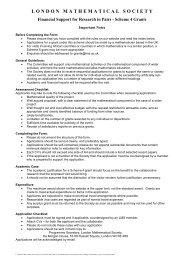The GPU Computing Revolution - London Mathematical Society
The GPU Computing Revolution - London Mathematical Society
The GPU Computing Revolution - London Mathematical Society
- No tags were found...
Create successful ePaper yourself
Turn your PDF publications into a flip-book with our unique Google optimized e-Paper software.
A KNOWLEDGE TRANSFER REPORT FROM THE LMSAND THE KTN FOR INDUSTRIAL MATHEMATICS21Appendix 1: Active Researchers and Practitioner GroupsThis is a rapidly growing field and there are already many active researchers and developers using <strong>GPU</strong> computingin the UK and around the world. <strong>The</strong> <strong>GPU</strong> developer conference held at the University of Cambridge in December2010 saw around 100 attendees, and the Many-Core and Reconfigurable Supercomputing Conference at Bristol inApril 2011 saw over 130 delegates, all actively working within this area.In the UK<strong>The</strong> list below is not intended to be exhaustive but instead to give a cross section of the <strong>GPU</strong> computing communityin the UK and beyond. Our apologies are offered in advance to anyone we left off this list.University of Bristol: McIntosh-Smith is a computer architect with extensive industrial experience designingmany-core heterogeneous architectures. He has more recently been developing software and algorithms for<strong>GPU</strong>s, and has been working on new, massively parallel algorithms for a range of different applicationsincluding molecular docking, computational chemistry, climate modelling, and linear algebra [78].University of Oxford: Giles is the leading expert in the UK in the use of many-core <strong>GPU</strong>s for financial applicationsand also for unstructured grid problems. Giles runs regular <strong>GPU</strong> programming workshops in NVIDIA’sproprietary CUDA programming language [43]. Also at Oxford, Karastergiou has been investigating the use of<strong>GPU</strong>s for the real-time processing of data for the future international telescope project, the Square KilometreArray (SKA) [64].University of Warwick: Jarvis’s group has performed extensive work modelling the performance of large-scaleHPC systems, more recently looking at the effects of adding <strong>GPU</strong>s into these systems. <strong>The</strong> group has aparticular focus on wavefront codes [62].Imperial College: Kelly is an expert in high-level tools for automatically generating optimised code for many-corearchitectures. His research interests include parallelising compilers and auto-tuning techniques [65].UCL: Atkinson is one of the leaders in applying <strong>GPU</strong>s to medical imaging problems, in particular MagneticResonance Imaging (MRI) [13].Edinburgh Parallel <strong>Computing</strong> Centre: EPCC is one of the leading providers of high-performance computingtraining in the UK [34], and can provide consultancy to help parallelise algorithms and software for parallelcomputer architectures.University of Manchester: Manchester has a vibrant community of <strong>GPU</strong> users and runs a ‘<strong>GPU</strong> club’ that meetson a semi-regular basis, attracting around one hundred attendees to recent events [72].Queen’s University Belfast: Gillan and Scott lead a group of experts in using many-core architectures for imageprocessing applications [46, 108]. This group provides expertise and consultancy to third parties who need toadapt their codes for <strong>GPU</strong>s and for reconfigurable systems based on Field-Programmable Gate Arrays(FPGAs).University of Cambridge: Pullan and Brandvik were two of the earliest adopters of many-core architectures in theUK. <strong>The</strong>y are experts in using <strong>GPU</strong>s for CFD and in porting structured grid codes to many-corearchitectures [20]. Also at Cambridge, Gratton has been investigating the use of AMD and NVIDIA <strong>GPU</strong>s foraccelerating cosmology codes [48]. All three are part of Cambridge’s Many-Core <strong>Computing</strong> Group whichalso has expertise in the use of <strong>GPU</strong>s for medical imaging and genomic sequence processing [22].Daresbury Laboratories: the Distributed <strong>Computing</strong> (DisCo) group at Daresbury Labs regularly runs workshopsin the use of many-core architectures and can provide support in porting codes to <strong>GPU</strong>s. <strong>The</strong>y also haveaccess to various <strong>GPU</strong> hardware platforms that they can make available for remote testing [30].



